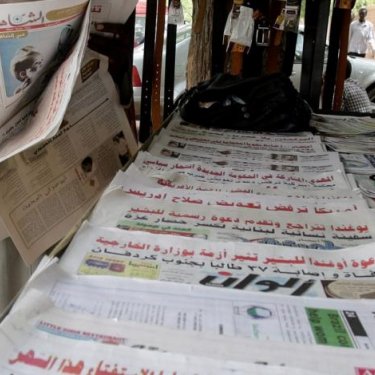Security agency uses seizures to throttle newspapers economically

Reporters Without Borders (RSF) condemns the complete impunity with which Sudan’s National Intelligence and Security Service (NISS) keeps censoring the media. The latest “red line” imposed by the NISS is coverage of a major strike by hospital personnel.
Today, the NISS seized 10,000 copies of the newspaper El Watan without giving any explanation. According to Journalists for Human Rights, a Sudanese group, it was a reprisal for an article on the strike, which is being staged in protest against NISS violence. Yesterday, the journalist Shaza Elshiek was arrested after writing a story about the strike.
The news website Radio Dabanga reported on 2 October that the NISS had telephoned newspaper editors and told them the medical workers’ strike was a “red line story” they should not cover.
A total of 46 hospitals throughout Sudan, including 21 in Khartoum state, are now participating in the strike, which began on 9 September after NISS officers beat up two doctors in a hospital.
“We firmly condemn this censorship of newspapers and intimidation of journalists,” RSF said. “The ‘red lines’ being imposed have nothing to do with security or defence and are just be used to prevent any criticism of the government and security forces by gagging the media. The seizures also put a great deal of financial pressure on the newspapers, and could be fatal for them.”
The strike is not the only subject that is off-limits. The NISS seized the latest issue of the newspaper El-Sayha on 3 October, a day after it published the last in a series of articles on good governance by the head of the Reform Now Movement, a dissident faction of the ruling National Congress Party.
The next day, the NISS seized 10,000 copies of the daily El Jareeda, whose editor, Ashraf Abdelaziz, was quoted by Radio Dabanga as saying the seizures were designed to exhaust the newspapers financially. “It is in fact a direct and methodical liquidation, meant to kill the independent press,” he said.
The opposition daily opposition Al-Taghyeer suspended publishing on 27 July and laid off many of its employees as a result of repeated seizures of its issues, which had a devastating impact on its finances.
Sudan is ranked near the bottom (174 out of 180 countries) in RSF’s 2016 World Press Freedom Index.



